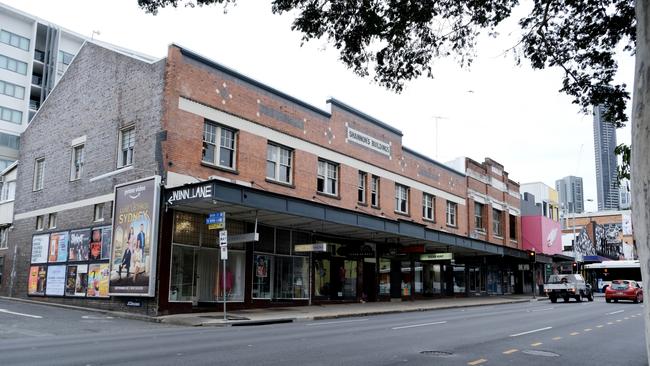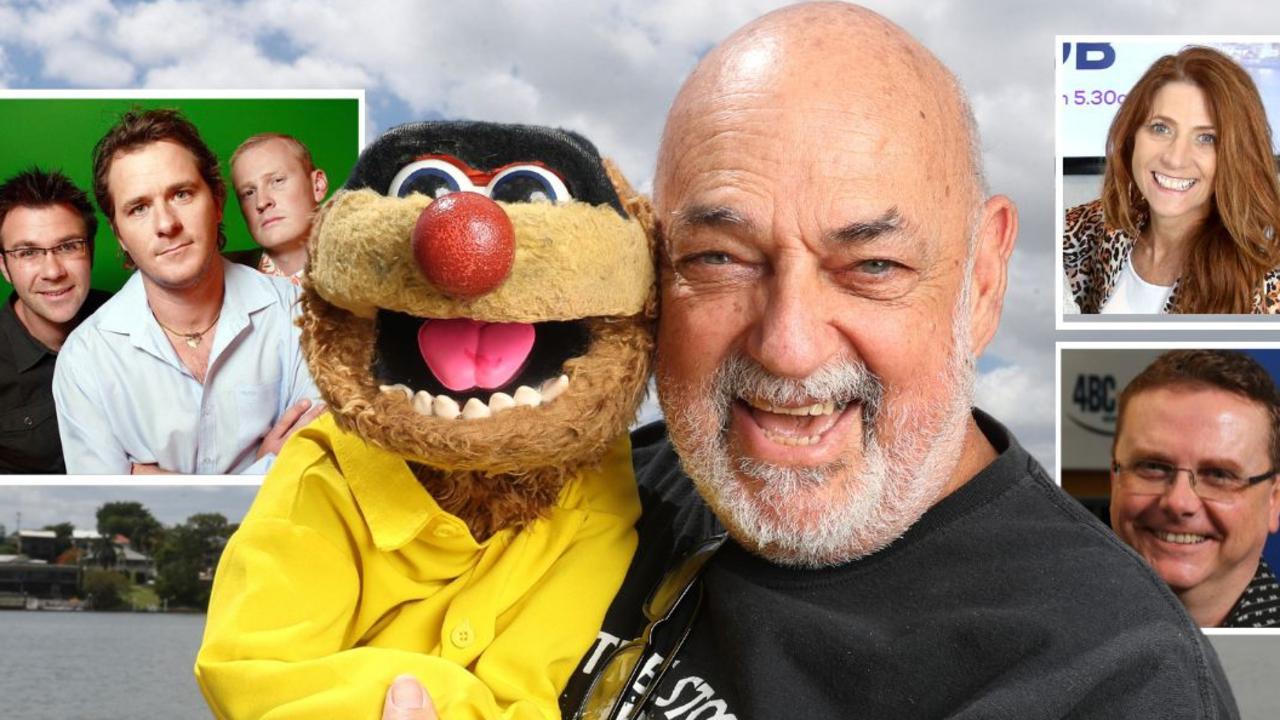Life after The Zoo: Future bleak for small, medium Brisbane live music venues as Gen Z eases up on booze
They were the stepping stones to rockers like Powderfinger and Violent Soho but now Brisbane’s small live music venues are facing destruction of its “business model” as booze sales dry up and costs spiral.
North
Don't miss out on the headlines from North. Followed categories will be added to My News.
Live venues have never been money spinners in Brisbane, but the announcement this week that iconic Valley music incubator The Zoo would close in July has sent shockwaves through the industry.
While landlords of the 1920s Shannon building on Ann St, the Apostolos family, said it was still too early to say if new operators could be found, industry figures said the signs did not look good.
The Zoo operator Shane Chidgzey said this week that ticket sales last year were the best in the venue’s 32-year history but revenue was down to 60 per cent of average as Gen Z sat on their beers instead of chugging down the booze.
He had tried to find new operators but none said they would be able to make the numbers work in the current environment where huge rent rises and the cost of living have forced young people to economise on their nights out.
He said Safe Night Precinct laws also had had an impact and needed reviewing.

Chidgzey, who has a background in renewables, gas, infrastructure and building industries, had deeper pockets than many operators but three years of losses was too much even for him to sustain.
“The hard truth is that we’ve been running at a loss for over three years,” he said in a statement this week.
“Despite exploring every avenue available to us, we could not secure the level of support needed to surmount the continued financial strain.
“We have no choice but to call last drinks for both of our beloved music venues.”
He said help was needed to keep smaller live venues running, possibly in the form of a levy on big international touring acts.
32 YEARS OF THE ZOO: SEE OUR MONSTER PHOTO GALLERY
Lord Mayor Adrian Schrinner said it was “clear the State Government’s draconian lockout laws played a role’’.
“We cannot afford to have these lockout laws act as a handbrake on our success,’’ he said.
A spokeswoman said Council supported live music outlets through amplified noise exemptions, if they were in the Valley Special Entertainment Precinct.
Its Better Brisbane Alliance had come up with initiatives such as Moretix, an online platform which promoted events at smaller venues.
It also had a Brisbane Business Hub which offered mentoring, workshops and networking.

Joc Curran, who co-founded The Zoo with C Smith at a time when women were a rarity in the industry, said the reality was that the club was never a money spinner.
“We always survived, but only just. We got it to the point where we would have a little bit of money at the end of the year,’’ she said.
“I remember when we were able to buy our first ice machine. Before that we had to lug bags of ice up the stairs for our first four years.
“It was a hard industry and you had to be passionate about it.’’
Curran said The Zoo would never even have got off the ground were it not for a State Government young entrepreneurs scheme.
“I handed in my business case, on a floppy disk, got assigned a case worker and I had to do an accountancy course,’’ she remembered.
“There were all these other young people with eclectic ideas from lavender farms, to making wooden toys and making giant screws for the mining industry.
“We got a small amount of (seed) money, the equivalent of the dole ($120 a week in those days).’’

Curran and Smith, both photographers, originally had the idea of a cafe, with art on the walls for sale, plus some live music every now and again.
“But when we walked up the stairs and saw this huge space, it was magical,’’ she said.
Licensing laws at the time meant they had to sell food with any drink orders, so for years they served up nachos and potato skins.
It was BYO for patrons, who had to put their drinks in a fridge.
But The Zoo went on to become a constant in a city where live venues came and went.
It celebrated its 30th anniversary in 2022. That year Cat Clarke and Luke “Boo’’ Johnston, who at the time ran the venue with Mr Chidgzey, announced an expansion called Stranded, an 80-seater “rock ‘n roll bar for grown-ups’’ with bottleshop.
In its three decades The Zoo hosted music luminaries such as The Pixies, The Black Keys, Paul Kelly, Lorde, Nick Cave and the Dirty Three, Ben Harper, Powderfinger, Silverchair, Violent Soho, Spiderbait, Tumbleweed, Mogwai — the list goes on.
By 2016 Curran and Smith needed a rest and handed over to another woman, a Telstra young businesswoman award winner by the name of Pixie Weyand.
She had four good years before Covid hit. Even when the hard lockdown eased there was a controversial, bizarre and thankfully brief ban on dancing and limits on crowd numbers.
Then came the Safe Night Precinct designation for parts of the Valley, which meant wanding and other security costs skyrocketed.
Stranded closes this weekend and The Zoo in July, ending an era in which a rollcall of talent entertained fans.
One of those was Powderfinger, although by then they were on their way.
Instead, they used The Zoo for “secret shows’’ to test out new material, going by names such as Denim Venim.
Bass player John Collins said The Zoo had for years been an important “stepping stone’’ in the development of local bands.
“Brisbane needs a Zoo. You need bands to be able to start at Black Bear Lodge (also in the Valley), then play Brightside, then the Princess, then the Triffid and Fortitude Music Hall, so they can scale up as their fan base grows and they get more confident,’’ he said.
“A city needs venues to grow up in, a good ecosystem for new talent.
“The Zoo was the first venue in Brisbane that was a mini hub for music. The others came and went, but it stayed.’’

Collins, a QMusic board member, was instrumental in the launch of the Fortitude Music Hall and the ongoing success of the Triffid.
Two weeks ago he accepted a Metro Venue of the Year award for the Music Hall and in his acceptance speech gave a shout-out to Brisbane’s smaller venues because of their importance in nurturing talent.
“The bigger venues have economies of scale but once you get below 1000 people, particularly down to 200-seat venues, the margins are very tight,’’ he said.
“Costs have gone up 30 per cent, while crowds in some cases have gone down 60 per cent.
“Security costs have gone up 50 per cent in some cases, not to mention insurance.
“We got a lot of help from the government and council to help us through Covid.
“But since then there’s been a perfect storm of rent rises, cost of living and a change in the way people are listening to music.
“There’s a whole generation, those 19 and older, who’ve never been to a venue or if they have it’s been to a big arena show like Taylor Swift.’’
The big venues also benefited from big backers who could take the hits in an industry characterised by wild ups and downs.

Live Nation, a huge promoter and Australia-wide venue owner, had interests in Fortitude Music Hall and the Triffid.
Promoter and tour company Destroy All Lines was also involved with Valley club The Brightside Brisbane.
Curran said The Zoo would have closed years ago were it not for developer brothers Charlie and Arthur Apostolos, whose father George started landmark eatery California Cafe.
The family has been integral to the Valley since the 1950s and were responsible for funky laneway projects Bakery Lane, Winn Lane and California Lane.
Charlie Apostolos said their philosophy was to keep rents on their 100 tenancies below market rates and to hand-pick the best tenants.

Mr Apostolos, 60, said he grew up with The Zoo. His father still had the original letter from Curran and Smith asking to rent the space.
“They were good tenants and we knew they were good for the other tenancies,’’ he said.
“We were the first to give free rent when lockdown started. We automatically went rent free for several months, then half price while there were limits on the number of people per square metre.
“This (The Zoo closing) has only just happened. We’re not sure what the future holds (for the space), but we’re never in a rush for anything.’’
Maybe, in time, they will find a brave new operator to continue The Zoo’s 32-year legacy.





